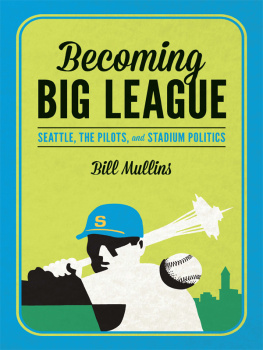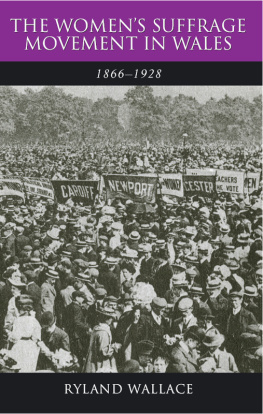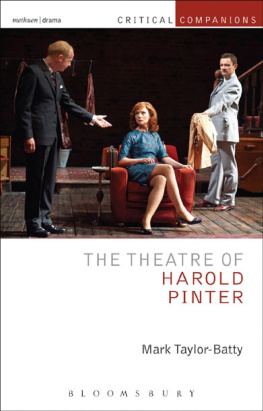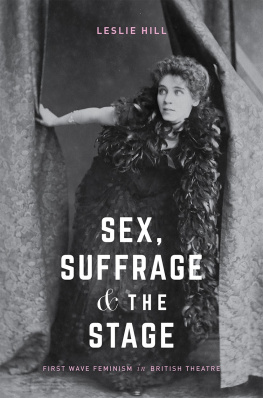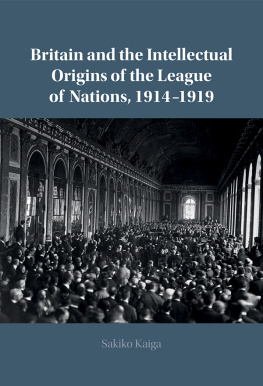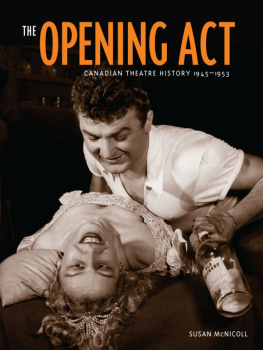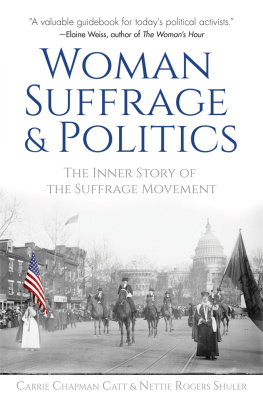STAGE RIGHTS!

WOMEN, THEATRE AND PERFORMANCE
SERIES EDITORS
MAGGIE B. GALE AND KATE DORNEY
Already published
Treading the bawds: actresses and playwrights on the late Stuart stage
GILLI BUSH-BAILEY
Performing herself: AutoBiography and Fanny Kellys Dramatic Recollections
GILLI BUSH-BAILEY
Auto/biography and identity: women, theatre and performance
EDS MAGGIE B. GALE AND VIV GARDNER
Women, theatre and performance: new histories, new historiographies
EDS MAGGIE B. GALE AND VIV GARDNER
Female performance practice on the fin-de-sicle popular stages of London and Paris: Experiment and advertisement
CATHERINE HINDSON
Plays and Performance Texts by Women 18801930: An Anthology of Plays by British and American Women of the Modernist Period
EDS MAGGIE B. GALE AND GILLI BUSH BAILEY
STAGE RIGHTS!
The Actresses Franchise League, activism and politics 190858
NAOMI PAXTON
Manchester University Press
Copyright Naomi Paxton 2018
The right of Naomi Paxton to be identified as the author of this work has been asserted by her in accordance with the Copyright, Designs and Patents Act 1988.
Published by Manchester University Press
Altrincham Street, Manchester M1 7JA
www.manchesteruniversitypress.co.uk
British Library Cataloguing-in-Publication Data
A catalogue record for this book is available from the British Library
ISBN 978 1 5261 1478 5 hardback
First published 2018
The publisher has no responsibility for the persistence or accuracy of URLs for any external or third-party internet websites referred to in this book, and does not guarantee that any content on such websites is, or will remain, accurate or appropriate.
Typeset by Out of House Publishing
CONTENTS
| AFL | Actresses Franchise League |
| MLWS | Mens League for Womens Suffrage |
| MPU | Mens Political Union for Womens Enfranchisement |
| NUWSS | National Union of Womens Suffrage Societies |
| WAB | Womens Adjustment Board |
| WEC | Womens Emergency Corps |
| WFL | Womens Freedom League |
| WSPU | Womens Social and Political Union |
| WWSL | Women Writers Suffrage League |
The Women, Theatre and Performance series was born out of a desire to bring together research on the many aspects of womens contributions to theatre and performance histories. Historically, the Second Wave womens movement in the 1980s produced research on women in the theatre industry and their work as playwrights, performers, designers, theatre-makers and consumers of theatre and performance. Feminist performance analysis and womens theatre history has now become an established part of performance practice and theatre studies at both a university and a more popular level, although work made by women frequently remains marginal to many educational curricula and within the mainstream repertoire.
In the 1990s, the journal Women and Theatre Occasional Papers, from which this series arose, placed an emphasis on history and historiography. Founding series editors Maggie B. Gale and Viv Gardner were concerned to open out womens theatre histories beyond those considered within feminist praxis. Work made by women seen as more mainstream or more commercial was explored alongside more innovative and politically oriented practices. This came from a desire to find a consistent outlet for the retrieval project of womens theatre and performance histories. The emphasis on history does not preclude engagement with contemporary practice, as our edited volumes evidence. Women, Theatre and Performance seeks to make research and debate on womens performance practices available on a more than occasional basis and has so far included edited volumes and single-themed monographs as well as reprints of performance texts by women, all of which share in common the consideration of womens theatre and performance as part of a wider nexus of theatre histories and of social and cultural practices.
Maggie B. Gale and Kate Dorney
The University of Manchester
Editorial Board: Gilli Bush-Bailey, Emeritus Professor of Womens Theatre History at the Royal Central School for Speech and Drama, London; Viv Gardner, Emeritus Professor of Drama, the University of Manchester.
With thanks to:
Professor Maggie B. Gale.
My family, my wife and my friends for their support and encouragement.
The many friends and colleagues who first caught my enthusiasm for the Actresses Franchise League (AFL) and who have been such inspiring collaborators and artists, in particular Shazz Andrew, Samantha Bond, Janie Dee, Louise Gold, David Hall, Jane How, Bruce Guthrie, Kathryn Martin, Andrew Mills, Charlotte Moore and Rebecca Mordan.
The families of AFL members who have been so generous with their time and memories.
Too many academics and historians to mention, but among them: Professor Anna Birch, Professor Katharine Cockin, Irene Cockroft, Dr Barbara Cohen-Stratyner, Beverley Cook, Elizabeth Crawford, Dr Susan Croft, Professor Lesley Ferris, Professor Viv Gardner, Dr Ailsa Grant Ferguson, Dr Claire Warden and all the librarians who worked at the Womens Library Reading Room when it was at the London Met.
Matthew Gregory, Encoded Ltd, Martin Levy, Susan Jeffs, Kathryn Martin and Equity Charitable Trust for the financial support which made the Ph.D. possible.
The Society of Theatre Research for an award to help cover image costs for this book.
Mark Dudgeon from Bloomsbury for considering and taking on The Methuen Drama Book of Suffrage Plays and Sarah Mowat from the National Theatre for programming the 2013 Platform performance of Suffragettes on Stage and helping spread the word about the AFL to a new audience.
Founded in 1908 as a bond of union between all women in the Theatrical profession who are in sympathy with the Womans Franchise Movement, the AFL was the first such organisation to orient its activities entirely around the politics of suffrage. The League produced and commissioned plays, participated in rallies and exhibitions and was fervently and productively active in the fight for the vote, creating a space in which professional feminist actresses could be, and be seen to be, politically engaged and active. Through the work of the League, performers and writers gained experience of involvement in direct action and constitutional campaigning, which supported their stance on issues that affected women in the theatre industry by placing their specific experience within a wider socio-cultural framework. Ensuring high-profile members were accessible to the public was a unique feature of the organisation and through speakers classes, regular appearances in public and in the suffragist, theatrical and national press, actresses learnt to communicate their political views with authority and confidence on stage and off.
This book was born out of my work primarily as an actress, performer and activist. I knew a little of the AFL but had not realised just how extensive and significant the organisation was. Nor had I realised that their work had carried on through two world wars and beyond, and had direct links to international feminist movements within the theatre. However, my hunch was that the League was more active, innovative and networked within the profession than previous scholarship had acknowledged, and I had many questions particularly around the diversity of performers and performance genres represented by the membership, and the contribution of theatre professionals to the wider performative aspects of the movement. The answers were startling and exciting. Performers and audiences experienced, through suffrage plays and the theatrical propaganda of the suffrage movement, a different kind of performance one that directly examined ideas of political participation, representation and spectatorship. These performances played with cultures of display and performative propaganda, manipulating images, text, form and space to find new ways to interact with their audiences and to effectively blur the boundaries between acting and being.


